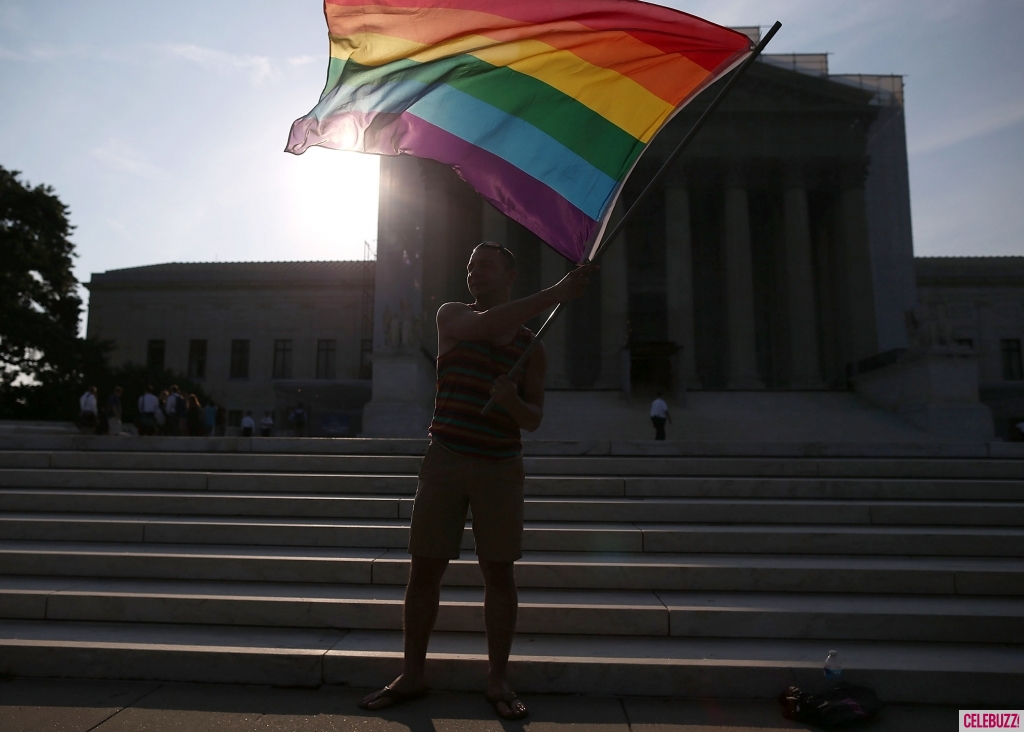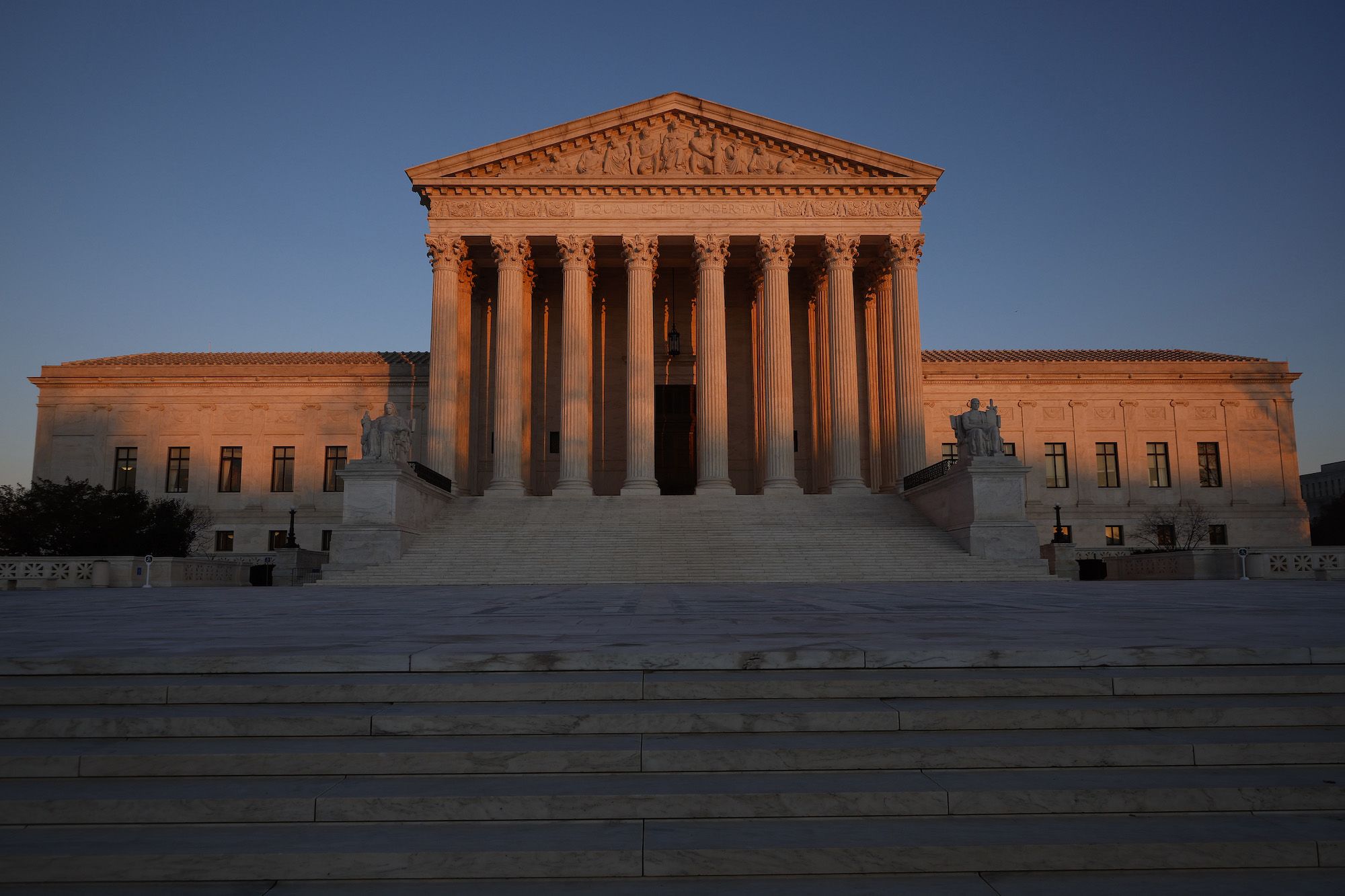By: Quinn Rogness
#LoveIsLove: This simple eleven character phrase followed President Obama’s tweet in support of the Supreme Court’s 5-4 ruling striking down key provisions in the Defense of Marriage Act, which is a historic milestone for gay rights in America. Due to Wednesday’s ruling in United States vs Windsor, same-sex couples who are legally married in states allowing same-sex marriage will now be able to enjoy over 1100 federal marriage benefits in which they had previously been excluded from receiving. The Supreme Court also dismissed an appeal from Proposition 8 supporters in Hollingsworth vs Perry, who unsuccessfully sought to defend California’s ban on gay marriage. With the Defense of Marriage Act significantly weakened and same-sex marriages ordered to resume by Governor Jerry Brown in California, June 26th will be remembered as a landmark victory for gay rights, but it still leaves many questions unanswered. What is the future for gay rights in America? How will gay and lesbian Georgians be affected by the court’s decision? What is the likely time frame for nationwide gay marriage?
84-year-old widow Edith Windsor celebrated her victory as plaintiff in Windsor vs United States with tears of joy in a press conference, in which section 3 of the Defense of Marriage Act was ruled unconstitutional. Prior to the Supreme Court’s ruling, Windsor was required to pay over $363,000 in federal estate taxes when her wife passed away in 2009, despite the fact that she lived in a state that recognized her marriage due to the Federal Government’s definition of marriage as being between one man and one woman. Justice Anthony Kennedy’s authored the court’s majority opinion, and wrote that DOMA placed legally married, same-sex couples in “second-tier marriages” by not giving them the same rights as those in a heterosexual marriage. Subsequently, Kennedy and the majority opinion found that this “demeans the couple”, and that “Under DOMA, same-sex married couples have their lives burdened, by reason of government decree, in visible and public ways.” The Court found this a violation of the Fifth Amendment. Due to this ruling, legally wedded same-sex couples will no longer face discriminatory measures by the same federal government that previously legislated that their marriages were “less equal than others.”
When the court ruled that the plaintiff’s did not have standing (legal damages) in Hollingsworth vs Perry, this made final a lower court’s decision ruling Proposition 8 (California’s gay marriage ban) as unconstitutional. For gay couples in California, this can be seen as a victory, because same-sex marriages are set to resume in the next month or so. However, this leaves the Supreme Court’s national position on a “right to marry” unanswered, and this will likely mean that a similar case will make its way through the court system and will almost certainly be addressed by the Supreme Court in years to come. Assuming the current makeup of the court remains the same throughout President Obama’s term, many analysts consider a 5-4 decision likely regardless of the ruling. Between now and that date, more states are likely to legalize either same-sex marriage (currently legal in fourteen states), or civil unions that give marriage-like benefits to same-sex couples (currently legal in four states). In 2013 alone, four states have already legalized or will legalize same-sex marriage, and Colorado has legalized same-sex civil unions. In regards to popular opinion, a May 2013 poll found that 55% of Americans now support the legal status of gay marriage, which is drastically higher than the meager 27% in support of gay marriage in 1996, the year in which the Defense of Marriage Act was passed. The wind is clearly behind the sails of same-sex marriages, as it continues to navigate the treacherous seas of state legislatures, state courts, and federal courts towards equality, and the wind continues to gain velocity by the minute.
For gays and lesbians in Georgia, a tough road remains ahead. Gay marriage is banned in Georgia’s state constitution in a 2004 referendum, where an overwhelming 76% of people voted to ban same-sex marriage. Nate Silver’s model has predicted that Georgia will remain one of just six states in the union who will have a majority against same-sex marriage by the year 2020. This paints a grim portrait for same-sex marriage advocates in Georgia, and if the Supreme Court does not make a ruling that legalizes same-sex marriage nationally, it is unlikely it will become law in Georgia in the next decade. Lagging behind the rest of the nation on a prominent social issue may leave stains on Georgia and its people, the same stains left by the South’s resistance towards civil rights for African-Americans five decades ago.
Strong opposition remains towards same-sex marriage, and a majority of the Republican Party remains opposed to most of the gay-rights agenda. Immediately after the Supreme Court’s ruling, Rep. Tim Huelskamp (R-KS) announced that he will attempt to pass a constitutional amendment restoring DOMA. While it is almost certain that Huelskamp will not have the support required to create a new constitutional amendment, it highlights social conservatives’ passionate resistance towards marriage equality. Georgia GOP chairwoman Sue Everhart articulated her opposition to same-sex marriage by arguing that if same-sex marriage were allowed, straight people of the same gender would begin marrying each other for financial benefits alone, a conspiracy eerily similar to the plot of the 2007 film I Now Pronounce You Chuck and Larry. Everhart also reasoned that homosexuality is not natural, and that “If it was natural, they would have the equipment to have a sexual relationship.” Same-Sex marriage is not permitted in thirty-six states, anti-LGBT violence remains a problem in the United States, and one can be fired for being gay in twenty-nine states, showcasing the room still to go for LGBT activists. On the other side of the coin, many prominent Republicans have come out in support of gay marriage, including Senator Mark Kirk of Illinois, Senator Rob Portman of Ohio, and former Utah Governor Jon Huntsman.
If one had to turn find a bit of culture to describe the advancements in LGBT rights in America, look no further than that Baby Boomer anthem, Bob Dylan’s “The Times They Are a Changin’”.
“Come mothers and fathers throughout the land/ and don’t criticize what you can’t understand/ your sons and your daughters are beyond your comman/ your old road is rapidly agin’/ please get out of the new one if you can’t lend your hand for the times they are a-changin”
America’s under-thirty population is overwhelmingly in support (73%) of same-sex marriage, while their parent’s are nearly 50-50 on the issue. The majority of their grandparents’ generation- Dylan’s generation- is against same-sex marriage. The wheels of the marriage equality and LGBT rights train are in motion, and appear to have more than enough momentum to reach major milestones in the next decade. What we are witnessing is a change in the social views of Americans, who are coming to the opinion that one should be able to marry who they love, regardless of their sexual orientation. More and more Americans are reaching the opinion that love is patient, love is kind, love is not heterosexual or homosexual. Love is love.



